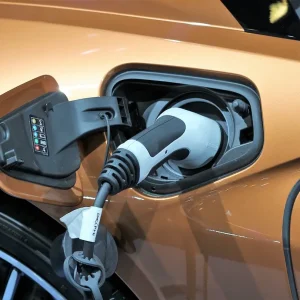Mis-managing pool cars and letting drivers use their own vehicles could see you end up in the dock, but employing a daily rental firm can shoulder your duty of care obligations and help make you green in the process.
When huge, successful corporations harp on about their ’employees’ they all wheel out similar sickening, flowery vernacular. “We wouldn’t be where we are today without our employees; our staff are truly our greatest assets.”
They’re lying of course, but until a workforce made up of androids with superhuman intelligence pitches up, they’re stuck with hopeless Homo sapiens.
‘Greatest assets’ should therefore also read ‘greatest liabilities’ because when not building up powerful influential, corporations, employees build in risk. Worse still, behind the wheel they can be downright lethal, not only to themselves and others, but to the very livelihood of a business.
The Government agrees, introducing painful but effective duty of care laws and one day soon – gulp – corporate manslaughter liability.
Part of the fallout from the legislation has been management being understandably nervous about managing risk, and one of the casualties has been the pool car, with even big, well-organised companies scrapping pool vehicles because of the huge management difficulties and potential lawsuits they can attract.
Many have replaced pool cars with cash for business miles in employees’ cars, which is, in duty of care terms, the equivalent of jumping from the frying pan into number two reactor at Sellafield.
Businesses are now being urged by the industry to choose daily rentals to relieve much of the duty of care issues while helping fulfil many companies’ pledges to reduce emissions.
Duty of care
The key advantage of rental is being able to pass a significant proportion of your liability toward the provider.
Pool cars can be the equivalent of a ticking time bomb, unless they are correctly and efficiently managed. Even big firms struggle to ensure they are correctly checked every time they are driven, especially when factoring in the multiple geographical locations a communal car may find itself in.
“Vehicle rental is an obvious option for all fleet managers who aren’t able to offer the very highest levels of vehicle maintenance in-house,” says Roger Hancock, managing director of rental firm Thrifty.
Hire cars simply do not have this problem and are scrupulously checked before delivery. Maintenance, too, will be up-to-date and in order, something that’s also difficult to ensure with the nomadic wandering life of pool cars. If the car is damaged, it’s replaced, and since the car is generally always less than six months old, wear and tear does not factor.
All this of course comes at a considerable premium compared to coughing up small change for drivers using their own car for business, but the added costs must be compared with the potential cost and numerous pitfalls of employees driving their own cars. There are fundamental issues of duty of care concerning employees’ cars.
“Whilst all employers would place the safety of their employees whilst travelling at the top of their priority list, the practicalities of ensuring this are often a big stumbling block. It’s just not practical [for a company] to carry out checks on a regular basis,” says Hancock.
Hancock goes on to explain that even if a system of regular checks is in place, someone has to actually make a qualified judgement call as to whether a vehicle is roadworthy or not.
National Car Rental’s sales boss Lorraine Farnon agrees that it’s tricky for firms to ensure a car is roadworthy, and says there is the additional problem “of the company and its employee having differing perceptions about the safety of a private vehicle”, hinting that many private cars might be maintained at a lower standard than a company-owned or run vehicle.
Everyone we spoke to agreed, however, that the biggest threat to a company’s duty of care was insurance on personal cars, or a terrifying lack of it.
Lacking appropriate insurance cover for business use is a familiar problem that renders employees effectively uninsured when driving for work. For example, how do you know the car at any specific time is still insured for work miles?
Worse still, even if you have carried out exhaustive paperwork checks, there is still the risk the employee may have taken their spouse’s car one morning.
If insurance wasn’t a big enough worry, the use of personal cars may mask a potential risk. So more and more companies are taking advantage of hire firm’s ability to pinpoint the rogue element among their ranks. Companies such as Avis tracks drivers’ rental history, reporting those who cost their company more.
Some will even monitor mileage and ensure that drivers are not spending a dangerous amount of time on the road.
Similar software introduced in the past five years can limit and restrict specific driver types to specific vehicles, preventing costly self-elected or luck-of-the-draw upgrades that could see the young office hothead bag a sportscar for the supersonic drive to Manchester.
Go green
At the beginning we gave the example of hypothetical corporations listing its greatest asset and fibbing, but if you put a gun to its head or dosed it with truth serum you’d get a different answer – ‘the brand’.
Brand in the 21st century is king and 2007 is the year where green brands will bask in the warm consumer light of spending.
Everyone in our industry is talking CO2 and vehicle hirers are no exception.
Acutely aware of customer desires, all have had to step up the game to satisfy new corporate green needs.
Easycar’s marketing boss John Sinke tips great things for the hire industry as more and more companies wake up to their collective environmental obligations.
“Car rental schemes are a vital part of developing a sustainable transport network for the future; short-term vehicle rentals can provide a viable, sustainable alternative to mass ownership,” says Sinke.
Despite operating as a third-party broker Easycar is currently developing a headline-grabbing green policy – yet more evidence that just offering the most up-to-date vehicles thanks to the nature of short-cycle fleet is not enough for its customers.
Other firms such as Enterprise have successfully introduced hybrids for conurbations such as London and Nottingham and are planning to roll out cars like the Toyota Prius to other cities.
National Car Rental has also introduced hybrids but has used innovative thinking to reduce CO2 for the rental cycle by using delivery drivers with fold-away scooters.
“The problem the rental industry is facing is that diesel, hybrid and lower emission vehicles cost more to develop and manufacture and so cost more to buy and maintain, and are therefore more costly to rent,” says Farnon.
Instead, National says a more intelligent and cost-effective use of hybrids would be to use them for brand-building meetings with important client rather than use a hatch for example.





